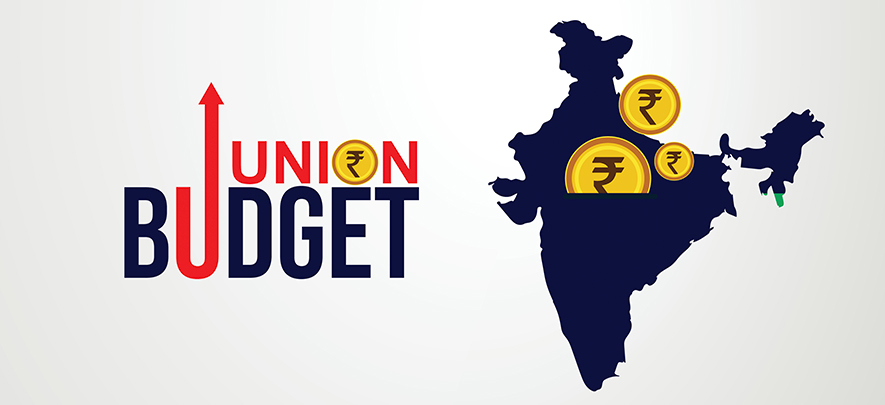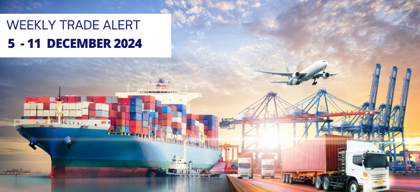Union Budget 2022: Key focus areas

Economy
150 week ago — 10 min read
Union Budget 2022 was presented in Parliament today by Finance Minister, Nirmala Sitharaman. The budget is the expenditure and revenue forecast by the government for the financial year.
At the outset of her speech, the Finance Minister said that we have entered into Amrit Kaal, the 25-year-long leadup to when India will mark 100 years of Independence. The focus in this period is on:
- Macro-economic level growth with micro-economic level all-inclusive welfare.
- Promoting digital economy & fintech, technology enabled development, energy transition, and climate action.
- Relying on virtuous cycle starting from private investment with public capital investment helping to crowd-in private investment.
A significant announcement is the introduction of digital rupee by Reserve Bank of India (RBI) using blockchain technology starting from FY23. The introduction of a central bank digital currency will give a big boost to the digital economy. It will also help in the currency management system.
Here are some of the key highlights of this budget.
Direct Tax
- Startups established before 31.03.2023 (earlier 31.03.2022; now extended by 1 year) will be provided tax breaks
- Provision for filing ‘Updated Income Tax returns’ within 2 years from end of relevant AY
- Tax relief for persons with disability: Allow annuity payment to differently abled dependents when parents attaining age of 60 years
- Deduction for National Pension Scheme for State Government employees u.s 80CCC made at par with Central Government.
- Last date for commencement of manufacturing for claiming lower tax regime under Section 115BAB to be 31.03.2024 (earlier 31.03.2023; now extended by 1 year)
- Income from transfer of virtual digital assets (crytocurrency) to be taxed at 30%
- 1% TDS on transfer of virtual assets above a threshold, gifts to be taxed
Duties on Industry
- Import duty on certain chemicals being/to be cut
- Customs duty exemption on steel scrap will be extended for another year for MSMEs
- Will revoke customs duty on stainless steel, flat products, high steel bars
- Beginning October 2022, unblended fuel to get additional duty of Rs 2/litre
- Import duty on cut and polished diamonds and gemstones to be cut 5 per cent and on sawn diamond to nil
- Customs duty duty concessions to be given to certain consumer electronic devices to promote manufacturing across wearables, hearables and specific mobile phone components.
MSMEs & startups
- MSME portals such as Udyam, e-SHRAM, NCS & Aseem portals will be inter-linked, their scope will be widened. They will now perform as portals with live organic databases providing G-C, B-C &and B-B services such as credit facilitation, boosting entrepreneurial opportunities
- Establishment of a fund with blended capital under the co-investment model facilitated through NABARD, which will focus on providing financing to startups in agriculture and rural enterprises across the entire farm produce supply chain.
- In the previous Budget, the finance minister unveiled a Rs 20 lakh crore Emergency Credit Line Guarantee Scheme (ECLGS) as MSMEs struggled to bear the economic impact of the COVID-19 outbreak. The ECLGS scheme, FM Sitharaman announced today, will now be extended to March 2023, with a guaranteed cover also extended by an additional Rs 50,000 crore. The total allotment under the scheme will now rise to Rs 5 lakh crore.
- Credit Guarantee Trust for Micro and Small Enterprises (CGTMSE) scheme will be revamped with required infusion of funds. This will facilitate additional credit of Rs 2 lakh crore for Micro and Small Enterprises and expand employment opportunities.
-
Raising and Accelerating MSME Performance (RAMP) programme with outlay of Rs 6,000 crore over 5 years will be rolled out.
- Startups will be promoted to facilitate Drone Shakti for Drone-As-A-Service
- PE/VC invested Rs 5.5 lakh crore in startup, expert committee will be set up to suggest measures to help attract investment
- Existing tax benefits for startups, which were offered redemption of taxes for 3 consecutive years, to be extended by 1 more year
Green Clearances
A single window portal, PARIVESH, for all green clearances was launched in 2018. It has been instrumental in reducing the time required for approvals significantly. The scope of this portal will now be expanded, to provide information to the applicants. Based on location of units, information about specific approvals will be provided. It will enable application for all four approvals through a single form, and tracking of the process through Centralized Processing Centre-Green (CPC-Green).
e-Passport
The issuance of e-Passports using embedded chip and futuristic technology will be rolled out in 2022-23 to enhance convenience for the citizens in their overseas travel.
Infrastructure
- PM Gati Shakti National Master Plan for expressways will be rolled out at a cost of Rs 20,000 crore.
- National Highways network to be expanded by 25,000 kms in 2022-23.
-
400 new generation Vande Bharat trains to be manufactured in next 3 years.
-
Metro systems, muti-model connectivity
-
100 Gati Shakti cargo terminals in the next 3 years.
Sustainable mobility & Opportunity for Battery or Energy as a Service
Promote a shift to use of public transport in urban areas. This will be complemented by clean tech and governance solutions, special mobility zones with zero fossil-fuel policy, and EV vehicles. Considering the constraint of space in urban areas for setting up charging stations at scale, a battery swapping policy will be brought out and inter-operability standards will be formulated. The private sector will be encouraged to develop sustainable and innovative business models for ‘Battery or Energy as a Service’. This will improve efficiency in the EV ecosystem.
Agriculture
- Procurement of wheat, paddy, kharif and rabi crops, benefiting over 1 crore farmers.
- NABARD to facilitate fund with blended capital to finance startups for agriculture & rural enterprise.
- Rs 2.37 lakh crore towards direct payments for minimum support price.
- Chemical-free, natural farming to be promoted across the country.
- 2022 to be Year of Millet - support for post-harvest value addition for millet products
- Using Kisan drones for crop assessment and spraying of pesticides
- Ken-Betwa river linking project at a cost of Rs 44,000 crore, to benefit 9.0 lakh hectare of farmer land
Education
- Digital University will be established, and to be made in different Indian languages, based on networked hub model.
- One Class, One TV channel will be expanded from 12 to 200 TV Channels to provide supplementary education in all regional languages, to make up for loss of formal education due to Covid.
Telecom
- Telecommunication in general, and 5G technology in particular, can enable growth and offer job opportunities. Required spectrum auctions will be conducted in 2022 to facilitate rollout of 5G mobile services within 2022- 23 by private telecom providers.
- A scheme for design-led manufacturing will be launched to build a strong ecosystem for 5G as part of the Production Linked Incentive Scheme.
Export Promotion
The Special Economic Zones Act will be replaced with a new legislation that will enable the states to become partners in ‘Development of Enterprise and Service Hubs’. This will cover all large existing and new industrial enclaves to optimally utilise available infrastructure and enhance competitiveness of exports.
Sunrise Opportunities
Artificial Intelligence, Geospatial Systems and Drones, Semiconductor and its eco-system, Space Economy, Genomics and Pharmaceuticals, Green Energy, and Clean Mobility Systems have immense potential to assist sustainable development at scale and modernize the country. They provide employment opportunities for youth, and make Indian industry more efficient and competitive. Supportive policies, light-touch regulations, facilitative actions to build domestic capacities, and promotion of research & development will guide the government’s approach. For R&D in these sunrise opportunities, in addition to efforts of collaboration among academia, industry and public institutions, government contribution will be provided.
Solar Power
To facilitate domestic manufacturing for the ambitious goal of 280 GW of installed solar capacity by 2030, an additional allocation of Rs 19,500 crore for Production Linked Incentive for manufacture of high efficiency modules, with priority to fully integrated manufacturing units from polysilicon to solar PV modules, will be made.
National Tele Mental Health Programme
The pandemic has accentuated mental health problems in people of all ages. To better the access to quality mental health counselling and care services, a ‘National Tele Mental Health Programme’ will be launched. This will include a network of 23 tele-mental health centres of excellence, with NIMHANS being the nodal centre and International Institute of Information Technology-Bangalore (IIITB) providing technology support.
Source: Budget Speech 2022-23
GlobalLinker recently conducted a webinar where a seasoned Chartered Accountant & Tax Expert shared insights on how Budget 2022 impacts MSMEs. Watch the highlights below.
Article image source: Shutterstock
Disclaimer: The views and opinions expressed in this article are those of the indicated source and do not necessarily reflect the views, official policy or position of GlobalLinker.
Posted by
GlobalLinker StaffWe are a team of experienced industry professionals committed to sharing our knowledge and skills with small & medium enterprises.
Most read this week
















Comments
Please login or Register to join the discussion